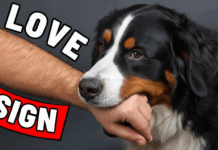Last Updated on June 19, 2024 by Dogs Vets
INTRODUCTION:
Brain injury in children can have profound and lasting effects on their health, development, and quality of life. When these injuries result from dog attacks, the situation becomes even more complex and challenging for families.
Dog owners are legally responsible for ensuring their pets do not pose a danger to others, especially vulnerable children. Understanding the nuances of dog owners’ liability in these cases is crucial for pursuing justice and securing compensation for the affected child.
For families dealing with the devastating impact of a child’s TBI from a dog attack, seeking guidance from an experienced attorney for brain injury victims is essential. These professionals can provide the necessary support to navigate the legal landscape and help families secure the compensation needed for their child’s recovery.
This article explores the key aspects of dog owners’ liability in brain injury cases involving children and outlines how families can protect their children’s interests.
Understanding Dog Owners’ Liability
Dog owners are responsible for controlling their pets and preventing harm to others. In many places, strict liability laws hold owners accountable for injuries caused by their dogs, regardless of the dog’s history of aggression. This means that even if a dog has never bitten anyone before, the owner could still be liable for a brain injury caused by an attack. These laws ensure that victims can receive compensation without proving the owner’s negligence.
Dog owners can still be held accountable under negligence or “one-bite” rules in areas without strict liability.
These rules require showing that the owner knew or should have known about the dog’s potential for aggression and failed to take reasonable steps to prevent harm. This often involves demonstrating that the owner did not properly restrain or supervise the dog. Understanding these legal principles is crucial for holding dog owners accountable and securing the child’s recovery resources.
The Severity of Brain Injury from Dog Attacks
Brain injury from dog attacks is particularly severe due to the force and impact involved. Children, with their smaller size and developing brains, are especially vulnerable to serious injuries. A dog’s bite or the physical force during an attack can lead to significant brain trauma, such as concussions, skull fractures, or extensive brain damage.
These injuries can have immediate and long-term effects on a child’s cognitive, physical, and emotional health.
Recovering from a brain injury often requires extensive medical treatment, rehabilitation, and ongoing support. The impact can hinder a child’s ability to learn, interact, and perform daily activities.
Families must manage the immediate medical challenges and the long-term implications for their child’s development. Addressing these challenges requires comprehensive care and a deep understanding of the impact of the injury.
Legal Recourse for Families
Families of children who suffer brain injury from dog attacks have various options for seeking justice and compensation. Filing a personal injury lawsuit against the dog owner can help cover medical treatment, rehabilitation costs, and other damages. This legal action is vital for providing the financial support necessary for the child’s recovery and long-term care.
Additionally, families may pursue claims against other parties, such as landlords or caretakers, who might share responsibility for the dog’s behavior. Working with a skilled attorney can help families navigate these complex legal processes, ensuring all responsible parties are held accountable, and the child receives needed compensation for their recovery and future needs.
The Importance of Medical Documentation
Thorough medical documentation is crucial in cases of brain injury resulting from dog attacks, especially those involving severe craniocerebral injuries. Detailed records from the initial treatments, ongoing care, and specialist evaluations provide essential evidence in legal proceedings. These documents help establish the severity of the injury, its impact on the child’s life, and the expected future medical needs and costs.
Families should diligently maintain comprehensive records of all medical visits, treatments, therapies, and related expenses. This detailed documentation supports the legal case and assists in planning for the child’s long-term care and rehabilitation.
Accurate and thorough medical records, particularly when dealing with serious craniocerebral injuries, are key to building a strong case for compensation and ensuring the child’s ongoing needs are adequately met.
Preventive Measures and Community Awareness
Preventing dog attacks and the resulting traumatic brain injuries (TBIs) in children involves proactive steps by dog owners and community efforts to promote safety. Here are key strategies to enhance safety and awareness:
For Dog Owners:
- Training and Supervision: Ensure dogs are properly trained and supervised, especially around children. Well-trained and controlled dogs are less likely to pose a threat.
- Use of Leashes and Veterinary Care: Keep dogs on leashes in public areas and maintain regular veterinary check-ups. Addressing health issues and spaying/neutering can reduce aggression.
Community Education and Support:
- Public Awareness: Launch campaigns to educate the public about safe dog interactions and responsible pet ownership, including tips for preventing dog attacks.
- Educational Programs: Host workshops at schools and community centers to teach families how to interact safely with dogs and understand their behavior.
- Local Policies and Enforcement: Support local policies like leash laws and training requirements and advocate for strict enforcement to enhance community safety.
Emotional and Psychological Impact on Families
The emotional and psychological toll of a brain injury from a dog attack extends beyond the physical injury. Children and their families often face significant emotional trauma, including fear, anxiety, and stress. The child may develop a lasting fear of dogs, affecting their ability to engage in normal activities.
Families may also struggle emotionally as they cope with their child’s recovery and adjust to changes in their daily lives. Support from counselors, therapists, and support groups can provide valuable assistance, helping families manage the long-term effects of a brain injury.
Addressing the emotional and psychological impact is crucial for the overall well-being and recovery of the child and their family.
Steps to Take Following a Dog-Related Brain Injury Incident
When a child suffers a brain injury from a dog attack, immediate action is crucial. First, urgent medical attention must be sought to address and stabilize the injury. Quick and comprehensive care can significantly improve the child’s recovery.
After ensuring medical care, thoroughly document the incident. Gather details about the attack’s location, time, and circumstances, and collect witness statements and any available video or photographic evidence.
Consulting with a knowledgeable attorney can help families navigate the legal complexities and pursue compensation, ensuring all responsible parties are held accountable. The child receives the necessary support for their recovery and future well-being.
Fact Check
We strive to provide the latest valuable information for pet lovers with accuracy and fairness. If you would like to add to this post or advertise with us, don’t hesitate to reach us. If you see something that doesn’t look right, contact us!























